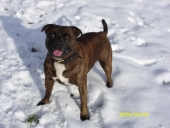

Jarret Hynd wrote:It was $23 New less than a year ago unfortunately. :(
p.s the German version of it, Der Agrar- Rebell, is selling for $20.


Sharol Tilgner wrote:I use to own an herbal company. We made only whole herb extracts with water, alcohol, and oils. The powders we used were almost always whole herb powders. However, I did purchase some solid extracts, and even one evaporated, extract powder over the years. Companies making extracted powders may use different methods. However, basically, an herb is extracted into a liquid medium and then the herb is removed and the resulting liquid is evaporated off the particulate matter left. Most of us think of things like teas (water) or tinctures (alcohol/water) as being used as the liquid mediums. Indeed the mediums of water and alcohol go get used. However, when I tried to find a Ginkgo extract that used only alcohol as a medium to make a powdered extract it proved to be hard, although I did find one. Most companies were and are using all sorts of chemicals to extract the herbs. Then machinery is used to evaporate or dehydrate the liquid (they want to remove the chemicals and in some cases even reuse the chemicals again.) There is a small amount of chemical usually left in the end herbal product, unfortunately. Now this would be similar to you making a super strong tea in your kitchen and then you strain out the herb and put the strong tea back on your stove and you allow your tea water to evaporate. It will become more concentrated as the water evaporates. Of course you do not have the equipment a professional extract maker may have. In this case the water goes into the air. Additionally, you have to watch your pot carefully as the product could burn as the moisture evaporates and the product becomes thicker. This is where fancy equipment comes in. However, I have examined solid extracts as well as herbal powders that smell and taste burnt, so I think that some products do get sold on the market that are indeed burnt. I found that you had to inquire of every manufacturer to find out what equipment they were using, what their particular process was, and especially important to me was were they using water and alcohol or a less desirable chemical as their extractive medium.

Anne Miller wrote:
Am I correct in my thinking? When making a dry herb extract, a person would take a herb, dehydrate it then grind it into a powder.
Using Aloe Vera as an example: To get a powder, you must dehydrate something. Mountain Rose Herbs says they use the whole leaf. "The type of Aloe Vera sold by Mountain Rose Herbs is made from the entire dehydrated leaf, cut or powdered." They says it is "Aloe Vera Leaf Powder"
Maybe another way to make the extract is to only dehydrate the "gel" So would the "Aloe Vera Extract Powder" be made from the gel?
Which would be more effective? And do these have different uses?
